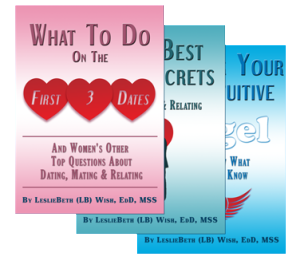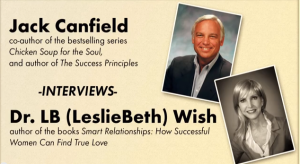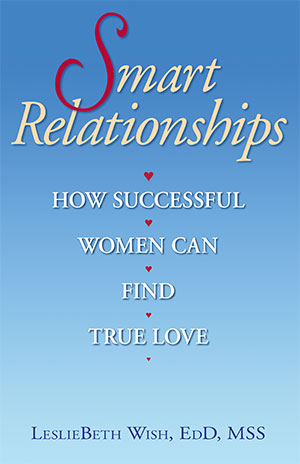 Have you ever felt shocked that your intimate partner turned out to be really different from how he or she seemed in the beginning? Or, after you’ve been in a love relationship for a while, have you minimized disturbing qualities in your partner in order to stay together to keep the peace—even if you are terribly unhappy?
Have you ever felt shocked that your intimate partner turned out to be really different from how he or she seemed in the beginning? Or, after you’ve been in a love relationship for a while, have you minimized disturbing qualities in your partner in order to stay together to keep the peace—even if you are terribly unhappy?
In my five years of research with thousands of couples—and in my many years of counseling even more—I’ve learned the top reasons and solutions to being blindsided in love. I hope the following top tips help you.If you answered yes, you are not alone. Most men and women in love have experienced being blindsided in love relationships. You may wonder: “What’s wrong with me? Why didn’t I see this behavior sooner? And how did I get fooled into thinking I was choosing a mate wisely?”
Blindsided Guide
1. Did you fall in love while you were going through tough times?
If you answered yes, it’s likely that your “love radar” was cloudy. High stressors such as illness, death of a loved one, ageing or moving to an unfamiliar location can make us feel extra alone and vulnerable. It’s normal to want to reach out for comfort from someone. But these are also the kind of life events that can make you turn a blind eye or dismiss signs that the person is not as good a match as you think.
But you don’t have to rush to break up. First, examine your own behavior and ask yourself: “What am I over-tolerating or minimizing? What do I do when something really upsets me?”
Secondly, problem-solve with your partner to develop a mutually satisfying solution. Do not play History where you each get stuck in “I said/You said” or “You did/didn’t.” Instead, play it Forward where you agree on a shared outcome.
If you can’t work together well as a team, seek counseling. You always have the option to break up, but make sure you do it when you know you have tried productive ways to fix your problems.
2. Did you date someone who seems the opposite of your previous ill-matched partners?
Again, many of us have tried to correct an unwise dating choice by choosing someone whom we think is very different. But, oops! We can often find that we have repeated the same mistake in another form when we thought we were choosing the opposite!
It can be very confusing. Consider this information:
In numerous studies, long-term, mutually happy couples report that their opposite styles are not only what attracted them to each other but what strengthen their relationship.
And, yet, these same differing styles can drive couples apart!
How could these two findings be true?
Think of your relationship as, well, as a ship. No ship could stay afloat if every crew member performed the same function. A ship needs people with varying skills to keep it seaworthy.
Similarly, we choose partners whose different coping, thinking and overall relationship pattern enhance or modulate our own.
We can get blindsided in love, however, when our mistaken solution is to choose a partner whose relationship style ends up as an over-correction that then backfires.
For example, when many of the women in my study broke up with their dominating and controlling or abusive men, the women then vowed to choose a more cooperative man.
That decision sounds great—except many of these women over-corrected their previous choice and fell in love with a man whose kindness turned out to be too passive and unreliable. When the going got tough, these men avoided conflict, unpleasantness or decisiveness.
A better solution is choose a wing-man or wing-woman who is a team player who adds to your life skills and personality style but on whom you can rely and whom you respect and like—and who respects and likes you.
3. Did you misread his or her nonverbal cues?
Numerous studies in attraction find that paying attention to nonverbal cues can often be a very reliable assessment tool.Unfortunately, most of us are not really good people-readers—especially when it comes to love. We get caught up in appearances, lifestyle or similar interests that, ultimately, might not carry much emotional importance in a relationship.
The next time you are with someone new, observe some of these key “tells:”
Does the person lean into your space too much? Cramping your space can be sign of control and dominance. Often these male dominators might even touch the female wait person.
Does the person touch his or her face, collar bone or the area just below it frequently? This gesture could be a sign of self-importance. It can also be a sign that the person is not telling the truth.
Does the person fidget with his or hands? Or does the person shake his or her leg up and down? These actions can be signs of nervousness and insecurity.
Does the person frown, wince or tighten his or her lips when you are talking? These changes in lips can signal judgment and dismissal.
When you do pay attention to words, make sure to notice more than just the words: Notice the frequency and length of time of certain words and phrases. Does the person talk about him or herself too much? Does the person use the “I” word too much? Does the person ask you about you?
There is no guarantee that you won’t make another wrong choice, but you can get better at being mindful, observant and accurate in your assessment even after you are in a relationship.
And always keep the mindset of “Trial and Learn.” We really do have to kiss lots of frogs to find a good match!







